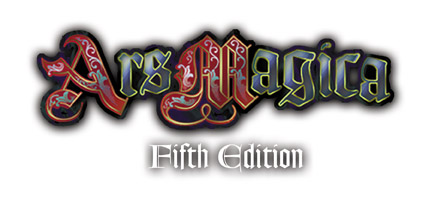The Fable of Khras-Nagar
Going through Elysium, the PCs walked the Path of Destiny and gained the following insight into Khras-Nagar's past. These images were seen along the path with narration provided from an unseen source.
In the fourth age of the world as the people who follow the Christ call it, the people of the hill grew strong, sending out their warriors armed with bronze and tin to subdue and conquer. They brought in much riches and extracted tribute from many lands. They built great monuments of stone and wood, learned of the movements of the stars, and worshipped the gods who blessed them with much. In the east a great monument for the dying was built where the waters of the land met the waters of the sea. To the south, a great stone monument for burials and ceremonies were built and added on, used by the people of the hill for countless seasons.
In time, the ancestors of Khras-Nagar led the people of the hill. Khras-Nagar was the last of this line, and its most successful. His people proclaimed him the Great Chief, Chief of Chiefs as his conquests outstripped his ancestors.
As the Babylonias sieged Jerusalem far to the east, signalling the end of the Fourth Age, Khras-Nagar declared his kingdom as eternal as the halls of the gods. On the third night he made this boast, a messenger of the gods appeared, promised him long life, and then cursed him to his present state.
His kingdom floundered without his leadership and the conquered lands fragmented and stopped paying tributes. His own tribe returned to digging for food out of the ground with barely enough to eat.
Much like the people of Israel, the people of the hill were themselves taken over by foreign blood bringing new languages, new warriors, new traditions. New weapons made of iron. The people of hill were killed, or captured, or driven away - some to the north, some to the east, some the west across the sea. And so began the Fifth Age of the world.
Still they encountered the invaders wherever they want, these Celts. Eventually they intermarried as the Celts settled their new lands across all the isles. Only a fraction of his people remained near Khras-Nagar, no longer aware of their once-great history.
In the near west, the people of the hill joined the Celts to became the Gangani (Ganganoi) and also settled to the far west of the far west isle. In the north, the people of the hill joined the Picts and became the Caledonii.
In the east, the people of the hill joined with Celts of Gaul to become the Parisii.
Many more seasons passed when red-and-gold foreigners with browned skin and smelling of the olives and steel. They invaded and for a while the Celts, led by a formidable female chief, fought them off. But eventually they, too, conquered the large island, but could not push all the way north and left the isle to the west alone. They called themselves Romans.
They married into the island’s peoples, and eventually their king abandoned the isles. The people now called themselves Britons.
The end of the Fifth Age, and the beginning of the Sixth age came both quietly and loudly. To those who could hear, the heavens announced the coming of a god on earth, and all of creation quieted as he was born.
Early in the Sixth Age of the world, men in black and brown robes with symbols made of wood with their god nailed on it came and converted the people to their worship to their one-and-three god. They called themselves Christians and soon all the isles were worshipping their god.
Shortly after, hairy people from the east across the sea moved in, hired to help the Britons hold off the Picts to the north. As the Pictish threat subsided, these mercenaries brought more of their people over.
Vicious raiders of Northmen came in some time after that, on coasts taking plunder and pillaging. They began to stay, ruling the north and east of the isle answering to the King of Danes, raiding inland until a native Briton king defeated the Northmen army and called for truce.
The Northmen also raided to the south, settling there and called themselves Normans. The messenger of the gods that streaks through the sky once every century announced the death of the old king and heralded the Norman invasion from the south. They eventually defeated the local rulers and flooded the land once more with foreign blood to take control. They are presently in control and now their people are marrying and diluting the blood of the people of the hill even more.
The people of the hill now lie in the four directions. The men of the south and east now call themselves English. The men to the west now call themselves Welsh or Irish. The men to the north call themselves Scots.
The curse of Khras-Nagar shall last until the Seventh Age or when before five souls including one last descendant of the people of the hill hear the proud king ask for forgiveness and is granted it by the five.










